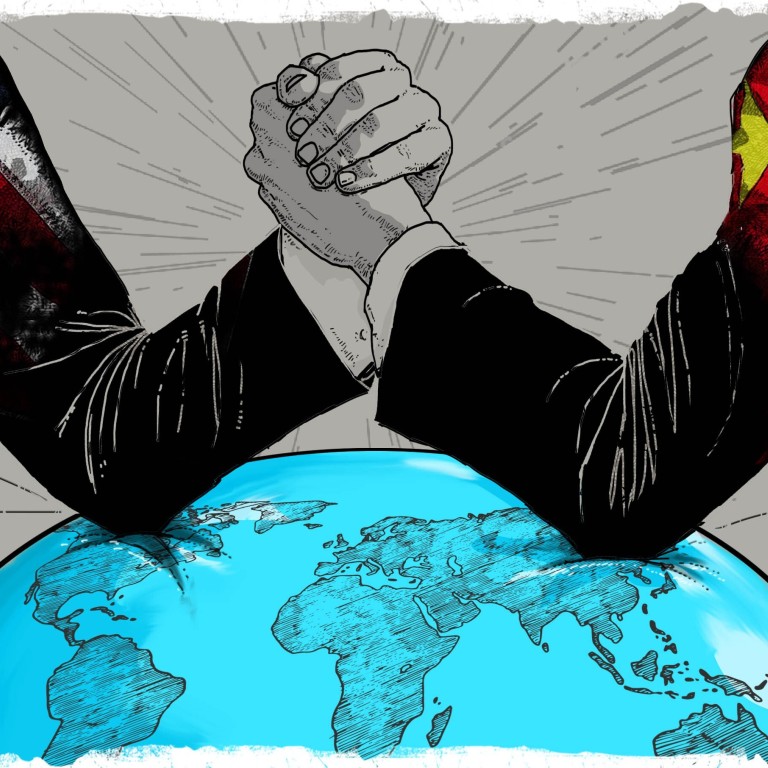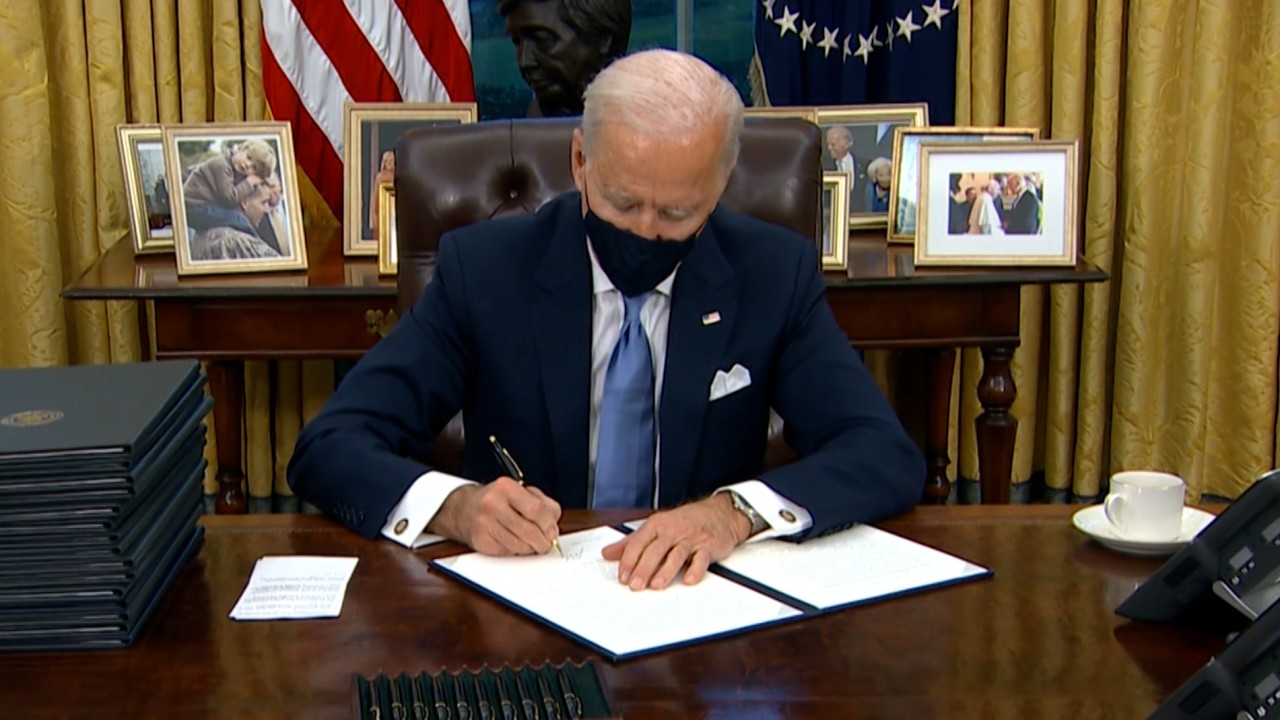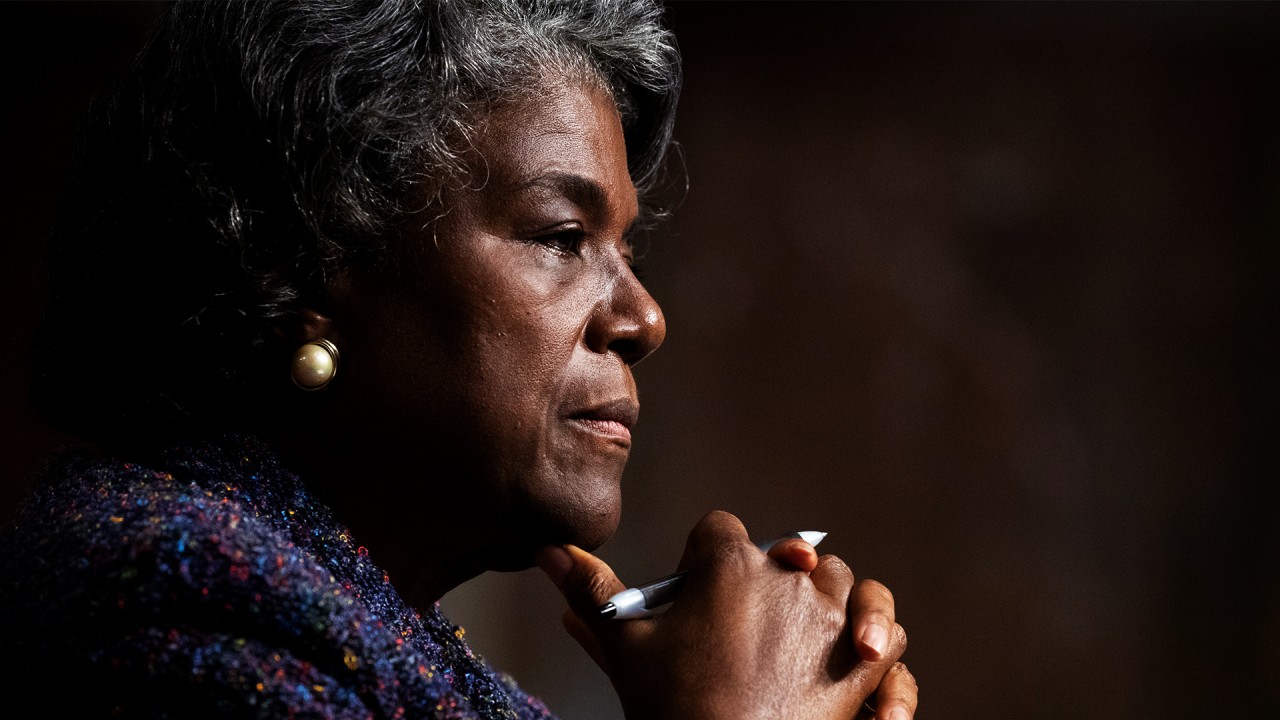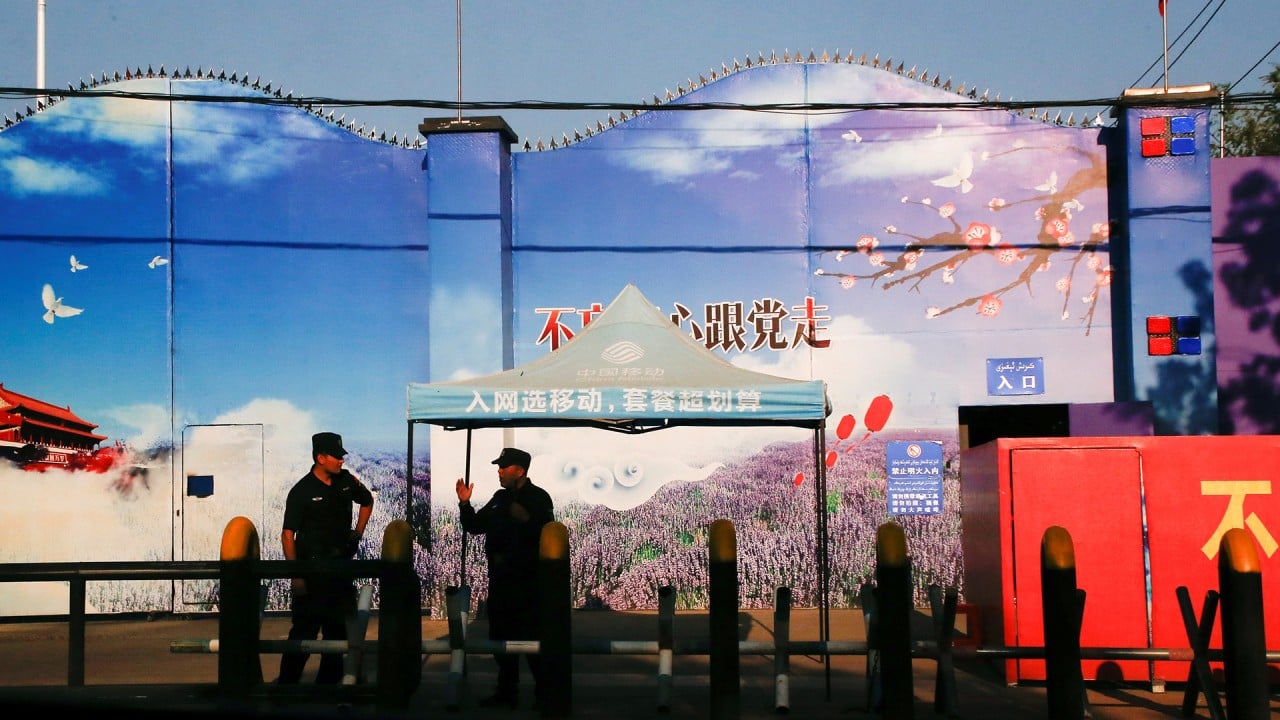
US-China relationship is ‘arguably’ the most important one in the world for Washington, says new Secretary of State Antony Blinken
- Blinken emphasises areas in which ‘it’s in our mutual interest to try to work together’, particularly with respect to climate change
- But he says the relationship between the two countries ‘has some adversarial aspects to it’
China looks set to remain a central feature of the United States’ foreign policy under Joe Biden, with newly appointed US Secretary of State Antony Blinken saying on Wednesday that Washington’s relationship with Beijing is “arguably the most important … that we have in the world”.
Speaking at his first press conference since being confirmed in his new position by the Senate on Tuesday, Blinken highlighted areas, like climate change, in which it was important for the two nations to “try to work together” but did not gloss over the conflict that existed between them.
“Increasingly, [the US-China] relationship has some adversarial aspects to it,” he said. “It also still has cooperative ones, and the cooperative ones are in areas where it’s in our mutual interest to try to work together, including manifestly on climate, where it’s in the interest of China and the interest of the United States and countries around the world to make concrete progress in combating global warming.”

00:49
President Biden signs first-day executive orders for US return to Paris climate accord, WHO and more
Despite Blinken putting China at the top of his list of key relationships, he has yet to speak to his Chinese counterpart, Wang Yi.
Blinken’s two other calls immediately after his confirmation were to Mexican Foreign Secretary Marcelo Ebrard and Canadian Foreign Minister Marc Garneau. He called his counterparts in Britain, France and Germany on Wednesday.

“It makes sense diplomatically that Blinken’s first calls in Asia would be to Japan and South Korea, by way of reassuring those allies, but also by way of generating buy-in from these countries whose support in the region is crucial for dealing with China,” said Sarah Kreps, a government and law professor at Cornell University.
US ambassador to UN nominee aims to counter China’s ‘authoritarian agenda’
“Blinken’s tone is consistent with the new tenor that the Biden administration is trying to herald both abroad and at home,” she said. “Abroad, it means trying to mend some of the alliances bruised after several years of an administration that was quick to rattle sabres and question alliances.
“It may be necessary to talk a harder line if the emphasis on diplomatic overtures doesn’t succeed, but the more constructive tone we’re seeing now is a solid foundation for some of the tougher negotiations, such as on climate, that are to come.”

02:01
Biden’s pick for UN ambassador pledges to counter China’s ‘authoritarian agenda’
Other incoming Biden administration officials signalled a hard line against Beijing earlier on Wednesday.
Special presidential climate envoy John Kerry, for example, vowed that Washington would not compromise on outstanding issues with the Chinese government, such as human rights and intellectual property protection, in exchange for cooperation on efforts to arrest global warming.
“We have serious differences with China on some very, very important issues,” Kerry told reporters in Washington. “The issues of theft of intellectual property and access to markets, the South China Sea. Run the list; we all know them. Those issues will never be traded for anything that has to do with climate.”
Suga and Biden to strengthen US-Japan alliance, with eye on China
As secretary of state under former president Barack Obama, Kerry founded the US-China Climate Change Working Group with his Chinese counterpart Yang Jiechi and helped broker negotiations with Beijing that ultimately paved the way for the Paris climate agreement.
Biden made rejoining the climate accord, which his predecessor Donald Trump withdrew from in 2017, one of his first tasks after taking his oath of office last week.
However, leaders and lawmakers in both political parties in the US are mostly aligned on taking the Chinese government to task for its internment of Uygurs and other Muslim minorities in facilities described by Beijing’s critics as “concentration camps” and by Chinese officials as “re-education camps”.

02:27
US declares China has committed genocide in its treatment of Uygurs in Xinjiang
Last year, the Uygur Human Rights Policy Act – introduced by Republican Florida Senator Marco Rubio and Democratic New Jersey Senator Bob Menendez – became law.
As Blinken spoke on Wednesday, Rubio and Jeff Merkley, a Democrat who sits on the Senate Foreign Relations Committee, reintroduced their Uygur Forced Labour Prevention Act, which would require US importers of Chinese goods to ensure that there is no forced labour involved in the manufacture of products they buy from the country.
The Biden administration also appeared to move closer to Pompeo’s stance against Chinese telecoms equipment manufacturer Huawei Technologies on Wednesday as White House press secretary Jen Psaki called the company’s products a national security threat.
Huawei founder sees decentralised control as a way to beat US sanctions
“Telecommunications equipment made by untrusted vendors, including Huawei, is a threat to the security of the US and our allies,” Psaki told White House reporters. “We’ll ensure that the American telecommunications networks do not use equipment from untrusted vendors and we’ll work with allies to secure their telecommunications networks.”
Pompeo made his “Clean Network” initiative, which sought to curtail the influence of Chinese tech firms on the development of data networks around the world, a key part of his agenda.
Britain, Sweden and several central and eastern European countries have plans to purge Chinese equipment from its 5G networks in the next seven years. Germany, France, Italy and other major European countries have moved to dissuade their companies from transacting with Huawei, and have placed tighter restrictions on its 5G networks that create obstacles for Huawei in those markets.

